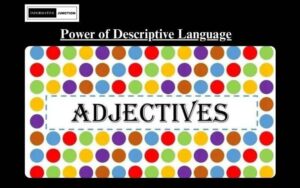Best Tips for email writing
We rely heavily on email for communicating with everyone from employees and clients to vendors and suppliers. Some emails go on for far too long, stringing together numerous paragraphs. Some of the criticisms are overly severe. Some others are excessively formal, while others are excessively informal. Some of them even put the business at risk of legal action.
We rely heavily on email, therefore every message we send needs to be well-written, suit the stated purpose of information dissemination, and be professional in tone. Clear and concise emails not only convey information effectively, but also save the reader and recipient time and effort, which ultimately benefits the bottom line.
Follow these 12 guidelines to create an effective email.
THE LINES IN THE TITLE MATTER
I find it quite annoying when the subject line of an incoming email is a teaser or has no relevance to the message itself. This will add more time to my day when I am attempting to search my inbox for a given topic but the subject line doesn’t reflect that topic.
It’s important to emphasize the bullet points and the call to action.
Using bullet points in an email makes it much easier for the reader to skim and absorb the information quickly and efficiently. It also makes it easier for the recipient to identify the message’s primary ideas. If the receiver is expected to do something after reading the email, make sure to emphasize the call to action.
KEEP IT BRIEF
No one has time to read a 10-paragraph email, so don’t send one. It’s likely that you’ll incorporate irrelevant information in an essay that’s 10 or even 4 paragraphs long.
DO NOT CONFUSE THE CONTENT
You should only send specific regional content through email. If you need to contact a coworker after a meeting, send them an email, but don’t bother filling them in on the company picnic, other clients, etc. If the email’s content is all over the place, the recipient will have a much harder time finding it in a search engine because the subject line won’t be relevant to the information they’re looking for.
ACT AUTHENTICALLY
Always begin an email with a greeting. To start out an email, I usually say something like, “I hope you had a great vacation” or “Have a great weekend – enjoy the Fall weather.”
WATCH YOUR VOICE
It can be difficult for the recipient of an email to infer the writer’s intended tone, but they usually succeed. Take care not to overuse exclamation marks or use aggressive language while drafting an email to avoid giving off a tone.
Avoid using emoticons and exclamation marks excessively.
Some people use exclamation marks to appear enthusiastic in emails, but they can also be read as expressions of wrath, frustration, etc. Furthermore, emojis should never be used in business correspondence unless they are amongst close friends.
Quotes that could be offensive to some should be avoided.
More and more email signatures feature quotations. While it’s good to include motivational sayings like “Be the best you can be every day,” you should stay away from sayings that could be misunderstood as religious or that could be seen as excluding certain groups of people. A loss of productivity and business could result from offending a coworker, client, or vendor with such remarks.
CONSTANTLY GO OVER YOUR EMAILS
Mistakes in your email correspondence, such as typos, are unprofessional. Take a few seconds more to proofread the email.
Never hit “send” on an email when feeling angry or agitated.
Use a word processor to compose the message instead of an email client so that you don’t hit the send button by accident.
Chains of Messages
While there are times when an email chain is necessary, there are also times when a brief phone call is more productive than a four-hour email chain. When making changes to the content areas, please do not change the subject line.
LEGAL CONSEQUENCES
Remember that a warrant may be required to access your email, your coworker’s email, and even the vendor’s email if any illegal activity occurs or a lawsuit is filed. Furthermore, the company owns all emails sent and received from your work email address. Therefore, NEVER send an email that contains information that could put you or your company in legal or professional jeopardy. This includes, but is not limited to, making false accusations, spreading false rumors, spreading false confessions, pestering others, providing rewards in exchange for information, and making hollow promises (especially regarding commodities).
Despite the abundance of resources, I still frequently receive badly written emails. One reason is that writing skills are often overlooked. Since the maximum length of a Tweet or text message is now 240 characters, everyone who sends an email from their phone nowadays always writes “excuse my typos.” Even though we have to write to survive in this world. The process of writing an effective email can be made easier by following the 12 guidelines provided.
Your emails will be more efficient, clearer, and less likely to require further action if you take the effort to stick to these rules, which I genuinely hope you will. In the end, this will free you up to concentrate on more pressing matters.
Click Here if you want to read more Interesting Blogs.




